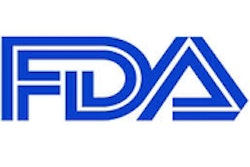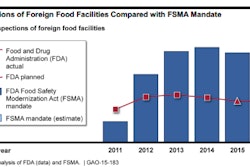All of the legal action brought against the FDA by consumer activist groups over the deadlines attached to the Food Safety Modernization Act (FSMA) appears to have reached a conclusion, with the announcement earlier this week of a consent agreement issued by the U.S. District Court in the Northern District of California between the FDA, the Center for Food Safety and the Center for Environmental Health.
The Center for Food Safety and the Center for Environmental Health filed a lawsuit in August 2012 charging that the FDA illegally missed deadlines for food safety rules set by Congress in the 2011 Food Safety Modernization Act. The court last year agreed with the groups and issued deadlines for all FDA food safety regulations by mid-2015, but the FDA appealed and asked the court to reconsider.
The good news is the consent agreement creates a new time line for finishing the food safety law rules. The document does allow the FDA to extend the deadlines for food safety regulations if the agency wins support from the Center for Food Safety and the Center for Environmental Health.
The consent agreement specifies the following deadlines for these final rules to be sent to the Federal Register for publication.
August 30, 2015 – preventive controls for human and animal food.
October 31, 2015 – foreign supplier verification program, produce safety standards, accreditation of third-party auditors.
March 31, 2016 – sanitary transportation of food and feed.
May 31, 2016 – intentional adulteration of food.
The FDA may seek to extend any of these deadlines if it believes a delay is warranted despite its best efforts to issue the rule involved.
The consent agreement’s later deadlines are positive, one industry food safety leader said.
“We are encouraged that FDA has been allowed to push back the June 2015 deadline for these rules,” United Fresh Produce Association’s David Gombas, senior vice president of food safety and technology, said in a news release. “Each rule represents major changes to the industry and FDA in how the safety of human and animal food is controlled and regulated, both domestically and imported. It’s critical that FDA have the time to ensure that the final rules are right.”
To read more, click HERE.


















